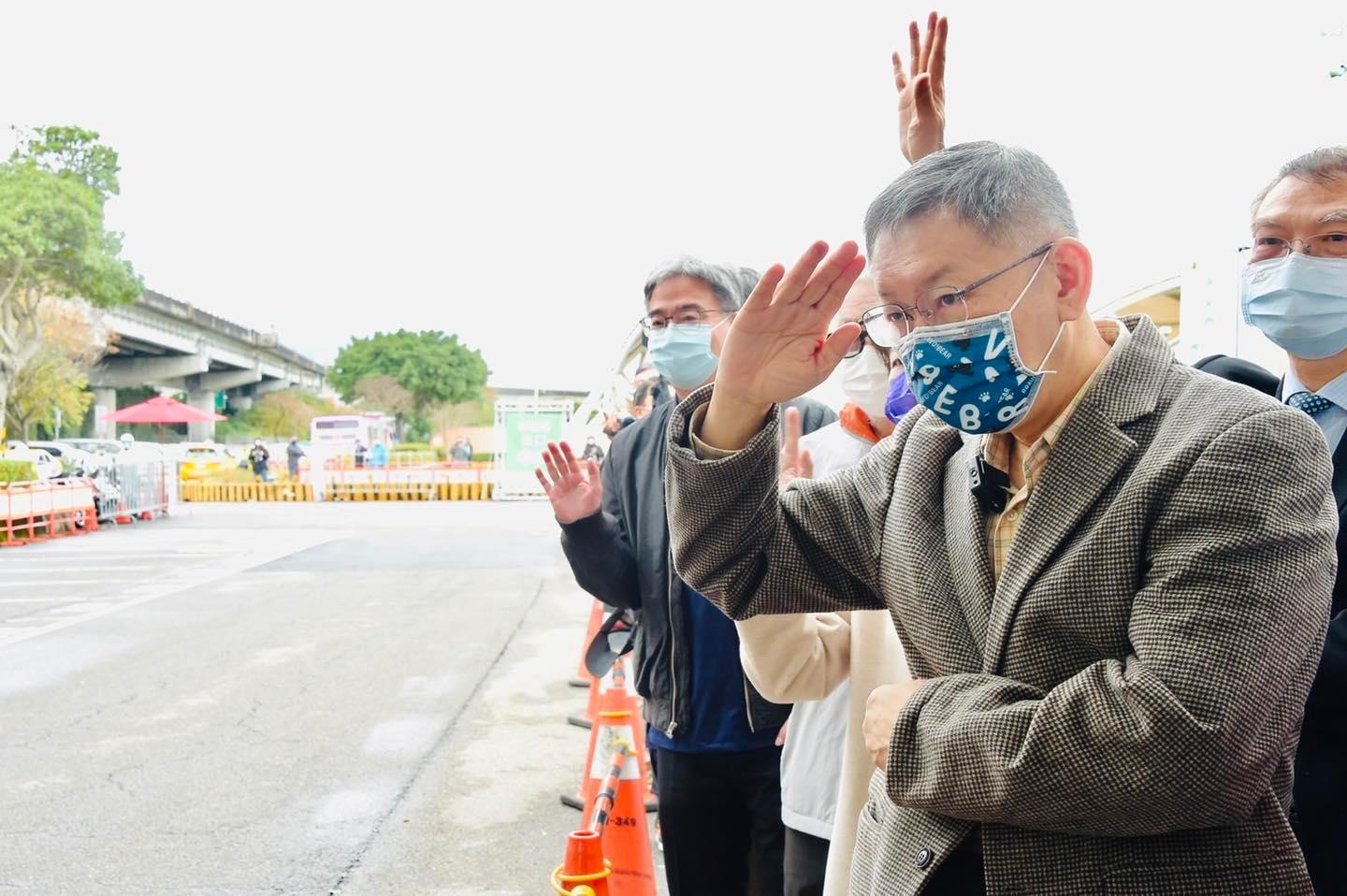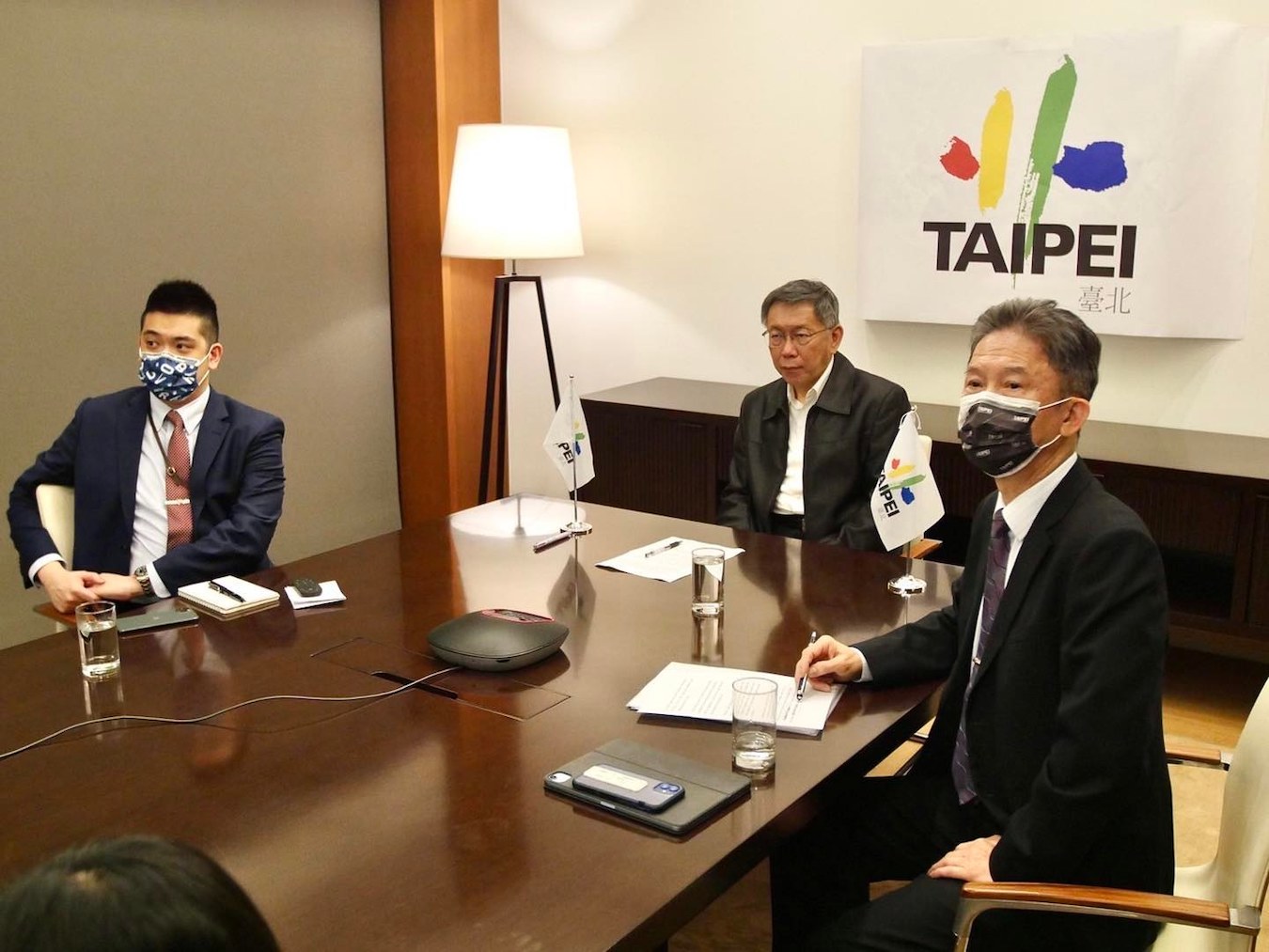by Brian Hioe
語言:
English
Photo Credit: Ko Wen-je/Facebook
TAIPEI MAYOR KO WEN-JE has stirred up controversy after recent comments calling for the construction of a bridge between Kinmen and Xiamen. Kinmen is the closest part of Taiwan to China, given that it is only ten kilometers away from Xiamen, and the two are accessible by ferry from each other.
Ko made the comments during a visit to Kinmen for the opening ceremony for a local campaign office for his Taiwan People’s Party (TPP), one of 29 such offices open nationwide to date. In his comments, Ko claimed that half of Kinmen’s current issues could be solved if such a bridge was built, suggesting that he was advocating closer political and economic relations between Kinmen and China, and that this was also what the TPP advocated.
 Taipei mayor Ko Wen-je. Photo credit: Ko Wen-je/Facebook
Taipei mayor Ko Wen-je. Photo credit: Ko Wen-je/Facebook
During his visit to Kinmen, Ko also called on Kinmen county magistrate Yang Cheng-wu of the KMT. One notes that this is not the only visit by Ko to Kinmen in recent memory, with Ko visiting Kinmen in 2019 to give a speech at National Quemoy University.
In the course of his 2019 visit, Ko called on former Kinmen county magistrate Chen Fu-hai, a former KMT and People First Party politician that was defeated narrowly by Yang in a reelection bid in 2018, and unsuccessfully ran for legislature in 2020. Following Ko’s recent comments, Chen praised Ko’s stance.
Ko’s visits to Yang and Chen may be aimed at strengthening ties with local politicians in Kinmen. Indeed, as also seen with the TPP opening offices nationally, the TPP may be aiming to expand its political reach, in preparation for future election plans.
Tseng Ming-chung, the KMT’s secretary-general, responded by stating that the views of the people of Kinmen should be considered, and that the government should carefully consider whether to proceed with Ko’s proposal.
Pan-Green politicians such as Taipei city councilor Lin Yingmeng have been sharply critical. In particular, members of the pan-Green camp have interpreted Ko’s proposal as an attempt to signal alignment with Chinese president Xi Jinping, with Xi having called for the strengthening of ties between China and Taiwan between the “New Four Links.”
The “New Four Links” includes a proposal for bridge construction between Xiamen and Kinmen. Indeed, this is not the only proposal by the Chinese government for constructing transportation infrastructure across the Taiwan Straits, as also seen in a proposal to construct an underwater tunnel that would connect Taiwan and China. However, such proposals are often outlandish and, in any case, could not proceed without agreement on both sides of the Taiwan Straits.
Some analysts take the view that Ko’s proposal of constructing a bridge between Xiamen and Kinmen is aimed at trying to win Beijing’s favor, in taking up Xi’s “New Four Links” notion. Ko making such statements takes place shortly after KMT chair Eric Chu visited the US for a diplomatic visit, with the KMT having also reopened its Washington DC office under Chu.
 Photo credit: Ko Wen-je/Facebook
Photo credit: Ko Wen-je/Facebook
Even if the TPP has to date sought to brand itself as a “lighter Blue” party that is not as ideologically hardline on cross-strait issues as the KMT, it is possible that Ko is attempting to rebalance with his recent comments, in order to try and lean in the direction of China at a time that Chu is read as trying to lean towards America.
If this is the case, it is to be seen how the TPP attempting to rebrand as a deep Blue party would sit with the party base. After all, the TPP seeking to change its image at this stage could alienate the party’s existing supporters and also put the TPP’s existing politicians in an awkward position, in terms of recalibrating their political image. Such a shift could contribute to tensions between Ko and other TPP politicians.
Otherwise, some have understood Ko as trying to divert attention away from himself through these comments. Ko currently faces scrutiny over allegations that Taipei city government employees are engaged in political attacks on opponents and critics of Ko, in acting as a “cyber-army” of Ko’s. While Ko has been dismissive of such allegations, consequently, Ko has been criticized by pan-Green Taipei city councilors, particularly given Ko’s own history of lashing out at the pan-Green camp with allegations that political criticisms against him come from a DPP-run “cyber-army”.

